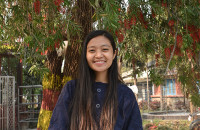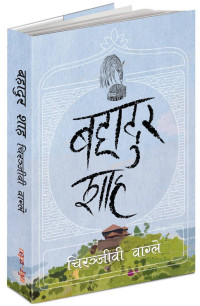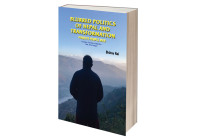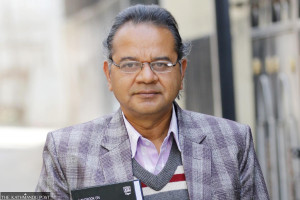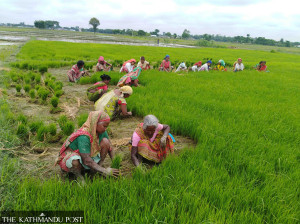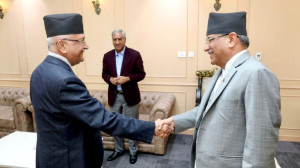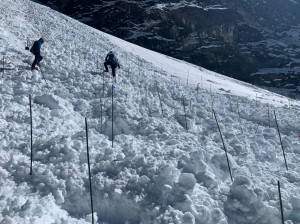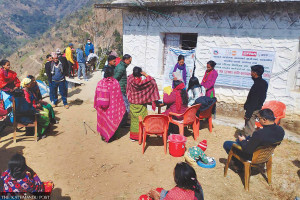 16.12°C Kathmandu
16.12°C KathmanduBooks
The lifelong journey of a poet
Abhi Subedi doesn’t aspire to settle into a specific style in ‘Forever Arriving’. Instead, he remains charged with a 50-year commitment to the medium, seeking to maintain a sense of freshness.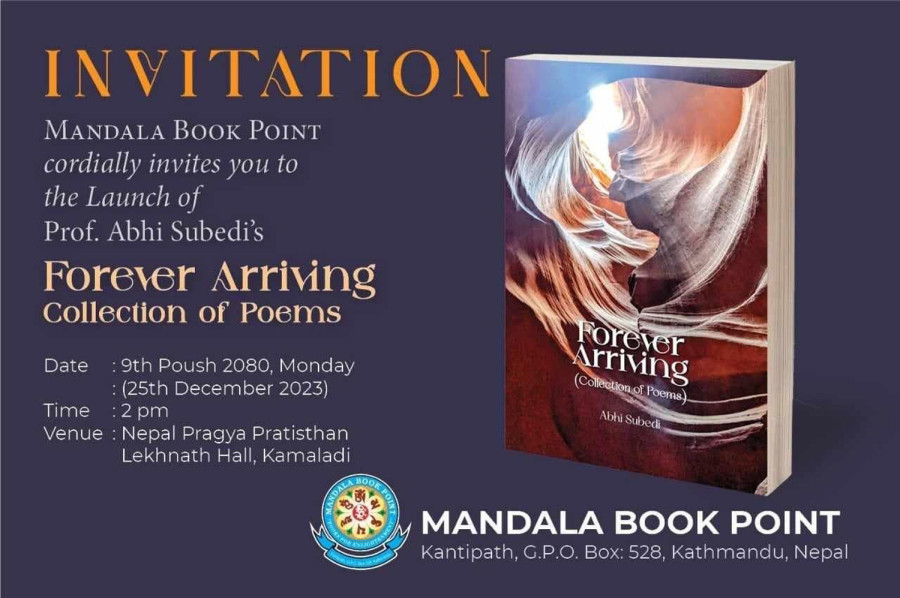
Shiva Rijal
I met poet Abhi Subedi at the Central Department of English, Kirtipur, in 1996. At the time, Subedi, in his fifties, could be seen strolling through the central campuses often. Already a well-known figure, his words and expressions sounded natural and spontaneous.
This was impressive—particularly for aspiring writers and researchers who wanted to work in both English and Nepali mediums. In the classroom, everyone was spellbound by his presentation. His tall and well-dressed presence embodied a combination of smartness, inspiration and creativity. He would discover issues from the rubbles of confusion and hypotheses about life and literature that the students brought into the classroom.
Subedi made the classroom come alive. As a student, I felt privileged to be taught by a poet and professor of his stature. Like his lecture, his plays and poetry have continued to lift my spirits over the years. Like a seasoned boatman, he still rows the boat called classroom and literary creations, seminars and public events with great finesse.
I remember the day he handed me a play titled ‘Dreams of Peach Blossoms’, written for the Nepal Heritage Society, which was headed by Sangita Thapa then. I entered the world of Nepali theatre directing this English play. Subedi later translated it himself into Nepali as ‘Aaruka Fulka Sapana’, directed by Sunil Pokharel later for the Arohan Theatre group. Critics and historians regard this play as a signpost of contemporary Nepali theatre.
Holding his latest collection of poems, ‘Forever Arriving’, I recognise writing poetry (in English) has been a lifelong journey for Subedi. With the anthology, he communicates that writing poems is an ongoing process of reaching a creative space. He doesn’t aspire to settle into a specific poetic style; instead, he remains charged with a fifty-year commitment to the medium, seeking to maintain a sense of freshness.
The anthology reflects Subedi’s zeal to write poetry, confidence in his ability to express beautifully and determination to focus on the medium he has chosen and refined.
Subedi’s space, as a Nepali writer in English, is also shown well in ‘Forever Arriving’. It introduces a poetic flavour that is distinct from his predecessors and contemporaries, free from the enticements of Western forms of poetic expression. Avoiding syllabic and metrical schemes, the poems allow him to display his creative energy. Each poem captures a moment of concentration, akin to a musician tuning his instruments, remembering their muse.
It’s clear Subedi approaches poetry as a creative exercise to check and realise his aptitude for creating expressive art. With each poem, he affirms that the poet in him is safe and happy. Once he discovers expressions of his own, he shares the joy and shares it as an achievement with his readers.
Having followed Subedi’s works and lifestyle for nearly three decades, I observe a direct connection between his personality and the poems included in ‘Forever Arriving’. Fearless in his attitude, he reaches into the nooks and crannies of human nature, advocating for common good causes, engaging in meaningful societal debates and writing as a liberated literary figure. He marks moments not for personal recognition but for the prestige of a poet’s karma.
This anthology features poems celebrating the poet’s immersion into the act of writing. Awed by life’s beauty and marred by its complexities, Subedi explores the flow of life within and around him. In the poem ‘Poetry Presentation’, a stanza encapsulates this sentiment: “I charge my words/ With sun and wind/ And sing them/ Down the valley of minds”.
Another notable aspect is the absence of native forms of poetic expression in the included poems. Subedi recalls Terhathum, his birthplace, and other significant locations in his life, with his mother recurring as a refrain. Despite these personal reflections, the expressions remain free from native modes. Subedi strives to infuse his local and personal Nepali experiences with a cosmopolitan flavour.
Free from the weight of myths and legends inherent to native traditions, the poems take readers into a world reflecting twentieth and twenty-first-century liberal values. In the final section, Subedi highlights the transcendent nature of his work, stating, “Transcending the borders and addressing the wider audience has always impelled me to choose a medium that would be fluid and even anarchist in nature”. Devoid of affirmations, ideologies or conclusive statements, his poems resonate primarily with readers who appreciate an unconditional focus on life and art.
Published by Mandala Book Point in December 2023, the anthology also demonstrates the book-designing craftmanship that Madhav Lal Maharjan, the proprietor of Mandala Book Point, has carved out in his over a fifty-year-long experience in book trade. Maharjan blends thematically connected photos from the poet’s life with the poems in a way that makes readers realise the presence of the designer while reading the book. This nuanced use of photography has enhanced the poetic flavour in the design of the book.
Subedi’s poems and Maharjan’s adept book collectively position ‘Forever Arriving’ as one of the finest collections of English poetry published by a Nepali poet.







